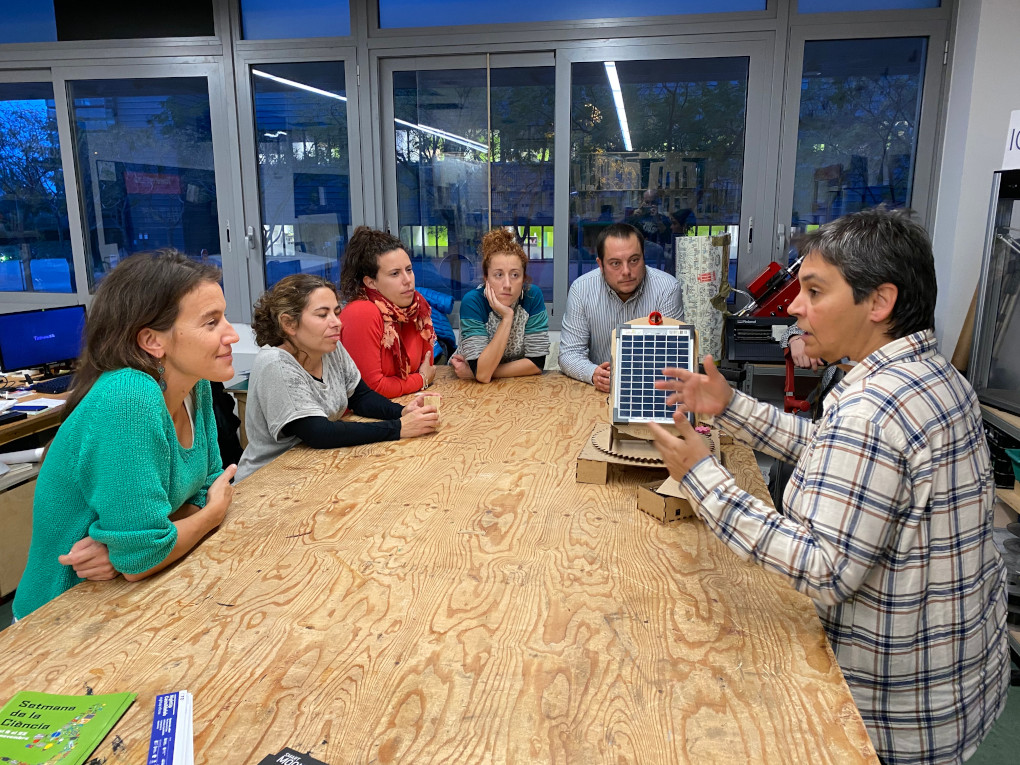
23/11/2019
Circular and solidarity economy: MAIA DAY 5
In the 5th day of MAIA we discussed about circular and solidarity economy, learning from succesfull local initiatives.
Marta Escamilla (Head of sustainability at LEITAT) presented Circular Economy as a powerful idea to achieve the SDGs. According to her, more and more companies and organizations are adopting this model that is based on 3 basic principles:
- To preserve and regenerate natural systems
- To design and produce without waste or contamination, promoting system efficiency and reducing the ecological footprint
- To maintain products and materials in use for as long as posible, optimising the use of resources
The circular economy provides an alternative to the linear economy, based on extracting raw materials, processing them into a product and throwing it away after using. In a circular model the idea is to close the cycles of the raw materials and to optimise the use of energy and resources, making production more sustainable.
Then Alba Cánovas, from Espigoladors, presented their inspiring initiative. They are a non-profit organization that fights food waste and social exclusion in a transformative, participatory, inclusive and sustainable way. With a circular economy approach, Espigoladors’ actions are explicitly aligned with the SDGs.
Another inspiring local initiative we got in touch with was the Esperanzah! Festival, presented to us by Oscar Rando, one of its founders. Oscar explained how Esperanzah! was created not only as a music festival but as a space for reflection and social transformation for all ages, genders and social conditions. Currently, it became a multiplier, a catalyst project that brings together other local projects of social transformation and solidarity economy
We also visit other projects such as the Esplais or socio-educational centers that are the core of the work of Fundesplai. . Those centers were created about 45 years ago as places to foster values and citizenship among children in their leisure time. They follow the 10 principles listed below:
- Integral education
- Education for peace
- Education for Interculturality
- Education for the development of global citizenship
- Education for participation and democracy
- Environmental education
- Education for gender equality
- Education for health
- Education for inclusion and equal opportunities
- Intergenerational education
Finalmente, también visitamos Fablab tinkerers, un laboratorio-taller de creación y fabricación digital que impulsa un proyecto educativo basado en la formación y divulgación de las nuevas tecnologías para crear soluciones innovativas a problemas locales. Se definen, por lo tanto, como un proyecto de Innovación Social Digital y consideran que la base de los proyectos de este tipo no son las máquinas sino el proyecto educativo que los sustentan.
Finally, we also visited Fablab tinkerers, a digital manufacturing lab and workshop based on the dissemination of new technologies as a way to create innovative solutions to local problems. They define themselves as a Digital Social Innovation project, and as such that their core are not the machines but the educational project behind them.
[mailpoet_form id="3"]